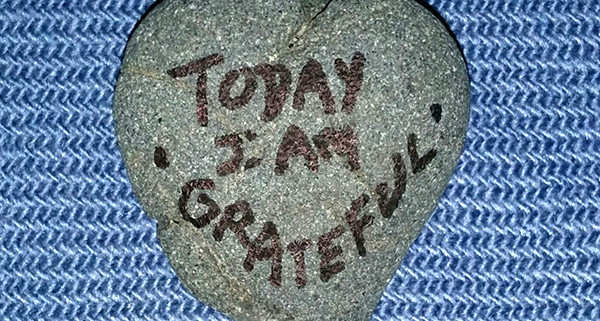5 Intention-setting Ideas for Self-Care Through This Holiday Season
“If your compassion does not include yourself, it is incomplete.” ― Buddha
With one of the most contentious presidential elections in recent memory still resonating throughout the world and the ‘season of giving’ fast approaching, I don’t believe I am alone in my felt experience of unease and restlessness.
Therefore, I spent some time in reflection around the questions of “What are the ways I take care of myself” and “What do I do to create a sacred, safe container for myself” in order to calm the uneasy and restless parts of myself. I recognize that if I don’t honor my own inner states of unrest, then I am unable to maintain my connection to that still point within where my authentic self exists, where my essence of love and light dwell, and, thus, will not be able to continue to walk a heart-led life, being the light not only for myself but for those that are struggling to find their way out of the darkness.
I thought I would share the outcome of my reflections with you below, so that you might try one of the techniques for yourself, when you may begin feeling like you have given all that you have to give to others and are in need of a recharge or reboot:
- Breathe. When we sense the weight of the world on our shoulders, feel unappreciated for all that we do, and experience our needs not being met or our voices being silenced, our bodies and minds subconsciously respond. And one of the most noticeable ways in which to observe this response is through the breath. We may begin to hold our breath or breathe very shallowly, which revs up our sympathetic nervous system, creating even more agitation in the body and mind. Therefore, simply stopping to take a few deep breaths in and out through the nose several times a day, consciously noticing the belly expanding on the inhale and softening on the exhale, will help keep the parasympathetic nervous system engaged, supporting the ‘relax and digest’ response in the mind and body. If you also want to try a breath practice that has a way of clearing out the mind, especially of those unwanted thoughts, you might try Brahmari breath, also known as “Bee’s breath”. There are several ways to practice this, but I find the most simple one being where you bring your pointer fingers to the external part of the ear that when you press into it, closes off the entrance to the ear canal, thus shutting out the ability to hear external sounds. You may also want to close your eyes. Then inhale normally through the nose and, as you close your eyes and ears, also close your lips and, as you breath out, make the sound of bees, like you are humming and maybe play with pulling your tongue back towards the back of your throat. Do this three times. You really can’t do it wrong, so have fun! Afterwards, sit for a moment and sense the results.
- Listen to your body. Our bodies have much innate wisdom to offer the mind, yet our culture informs us to THINK instead of FEEL, creating a wall between the body and mind. You may not be aware of it, but our bodies will naturally burp when our stomachs are full, informing the mind that we have eaten all that the body needs to remain vibrant and healthy. Unfortunately, most of us ‘eat on the run’ these days, so we don’t create space for the wisdom of our bodies. Maybe set an intention the next time you find yourself sitting down for a meal with your family (think Thanksgiving) to become aware of when the body first burps. At first it might not happen or we might forget to listen – don’t give up. Try again next time. Listen. We have been schooled that burping is rude, so it might take a couple of times. Eventually, when you tune in, you will thank your body for its natural ‘full gas tank’ sound going off!
- Practice aparigraha. Aparigraha, Sanskrit for non-attachment, suggests that our suffering comes from the disappointment that we feel when we are attached to an expectation, or outcome, and something else happens instead. For this practice, I would start with something small, to test it out for yourself. The holiday season can bring with it a recipe for unmet expectations, with the sparkling lights and songs on the radio filling our hearts with anticipation as we make plans to gather with friends and family, while, at the same time, our schedules get overloaded and our budgets get stretched thin. So, in order to reduce a bit of the stress during this time of year, maybe begin by simply thinking about level-setting your expectations of how others ‘should’ act during this time of year, and that may include you. If we create space in our minds and hearts to allow others to do what they need to do without wanting them to do what we want them to do, it makes room for us to do more of what we need to do to make ourselves more peaceful.
- Express gratitude. Research has shown that when we consciously focus our minds on the abundance in our lives, versus focusing on the lack, we experience more peace and joy in our lives. This holiday season is one of the best times to start a regular gratitude practice. I recommend writing down those things that you are grateful for in a journal, although it can be even more powerful if you have someone to share the practice with each day. Either first thing in the morning or right before you go to bed, you can share one (or more!) experiences in your life or day that you felt grateful for in the moment. It doesn’t have to be something big and, in fact, it is the small things that seem to bring the greatest warmth to the heart. For example, every morning I am grateful for having hot water for my shower and every night I am grateful for having a warm bed to rest my head. Try it and I promise you won’t be sorry you did!
- Try SELF-compassion. As the Buddha quote above suggests, the experience of compassion must be expressed to both others and to ourselves if we truly want optimal health. Our culture informs us to have compassion for others, especially those that are less fortunate than ourselves. Unfortunately, it is this same culture that drives us hard to be successful, where multi-tasking is glorified, and competition is the name of the game. So when we falter, and drop a ball or two that we have been juggling, we tend to be very critical of ourselves, maybe even thinking to ourselves that we are a failure or punishing ourselves in some way. This inner critic can be very harsh, creating limiting beliefs and holding us back from real joy in our lives. Instead, if we can practice offering ourselves the same loving kindness we offer to a good friend when they are suffering in some way, our bodies, minds, and hearts soften, opening to the lesson of accepting imperfection as the shared human experience. Ahhhh, feel the relief when we let go of the expectation of perfection (do I hear an opportunity to practice aparigraha?)!












Leave a Reply
Want to join the discussion?Feel free to contribute!